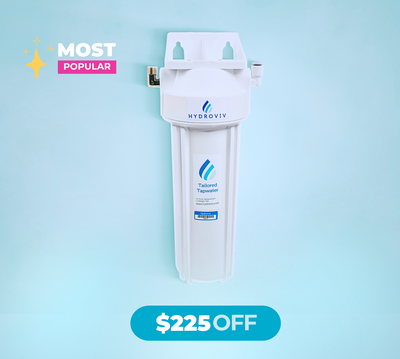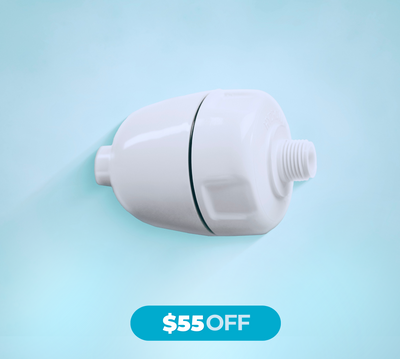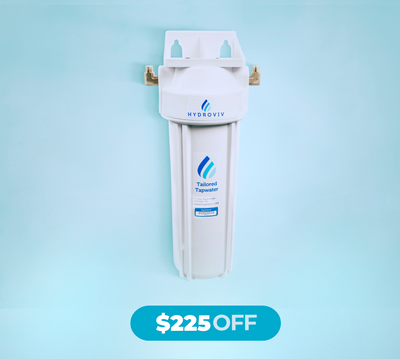What You Need To Know About Hard Water
RSS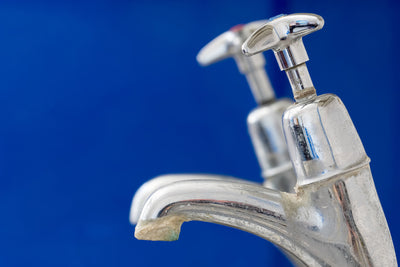
Julie Bray | Scientific Contributor
A lot of people experience issues with hard water in their homes. Mineral buildup can be a nuisance and cause fixtures to not look aesthetically pleasing. In this article, we answer questions about what hard water is and offer some practical tips on how to remove buildup without needing to buy an expensive water softener.
What is Hard Water?
Water is a great solvent for many of the earth’s minerals, including calcium and magnesium. Unfortunately this useful property has a downside. As groundwater moves through the earth it dissolves minerals - resulting in such minerals being delivered to you via your household water supply. When the dissolved minerals in the water reach a relatively high level, which is fairly common, your water is referred to as hard water. Water is considered hard when it exceeds 3 grains per gallon or 17.1 Parts per million. Water hardness varies throughout the United States.
What Are Signs That You Have Hard Water?
Hard water contains high amounts of calcium and magnesium. When these two chemicals bond together, they create mineral deposits or scale. In the industrial setting, hard water can create buildups in machinery, such as boilers and cooling towers, leading to either the use of expensive mineral removal systems or expensive maintenance. In the domestic setting, hard water makes household cleaning tasks more difficult and can cause serious problems.
1. Washing
Hard water prevents soap from lathering by causing insoluble particles in the water creating problems around the house. Calcium and magnesium from hard water react with soap to produce soap scum. This forces homeowners to use more water for showering and washing dishes, which could increase monthly water bills. Clothes may appear grey and dingy and feel rougher. Detergent is less effective when used with hard water as soap scum may lodge in the fabric during washing. This may shorten the life of clothes. Dishes and glasses often look murky or foggy due to the presence of soap scum after being washed in hard water. Soap scum can also make the hair feel slick and dull. Washing the body with soap and hard water may leave a film of sticky soap curd on the skin. This can create irritation and possibly hinder cleaning.
2. Bathroom
Hard water can create a film on showers, tubs, sinks, faucets, and other fixtures. Once the scale deposits itself on a surface, getting it off can be very difficult. These deposits can make the kitchen and the bathroom look dirty and dingy after being cleaned.
3. Pipes
Minerals in hard water deposit in pipes over time, which gradually slows the water pressure in a house. Complete blockage of pipes is unlikely. Pipes may become clogged with scale over time, creating less movement through pipes. This is similar to cholesterol buildup, creating less movement through blood vessels.
4. Appliances
Mineral deposits from hard water can interfere with appliances such as dishwashers, water heaters, and washing machines. Loose minerals may cling to appliances and cause them to break.
5. Cookware
White chalky residue can sometimes form on cookware, which, even though it's most likely due to buildup of harmless minerals, is nevertheless unsightly. Our Water Nerds wrote this article about how to remove this residue buildup from your cookware.
Is Hard Water Bad For You?
Hard water is not a health hazard. The National Research Council states that hard drinking water contributes a small amount to the calcium and magnesium necessary for the human diet.
Additionally, many experts even believe that drinking hard water can decrease the risk of heart attacks (“The high heart health value of drinking-water magnesium” by Andrea Rosanoff). This speculation is currently under further investigation by the World Health Organization (WHO) and other groups.
How to Fix Hard Water
Public water system operators are required to provide annual water quality reports. These tests sometimes include water hardness information. Water hardness tests are also available through your city or state health department upon request for a small fee and many companies that sell softeners offer testing material. If you find that you need to soften your water, there are some expensive hard water solutions such as Ion Exchange (magnesium and calcium bond with sodium in the water) or Reverse Osmosis. Typically these treat the whole house and can be thousands of dollars. Water softener systems can be an okay hard water solution but also expensive. If you don't have the money or motivation to buy/maintain an expensive water softener, here are some practical tips:
How To Remove Scale From Your Showerhead:
1. take an old toothbrush and remove any surface deposits visible on the showerhead.2. Take a bag of distilled white vinegar and submerge your showerhead in the bag.
3. Use a rubber band or twist tie to tie off the bag and secure the vinegar.
4. After 12 hours remove the bag and turn on the showerhead to flush the deposits.
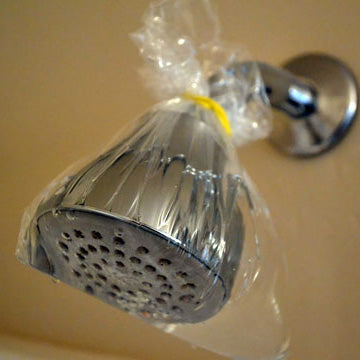
Other Easy Fixes For Hard Water Nuisances:
- Run white vinegar in dishwasher: Adding two cups of white vinegar to the dishwasher can reduce buildup. Running the dishwasher with dishes that have been stained by scale can help remove some of the foggy/ murkiness.
- Use lemon juice to spray and soak fixtures: Using a spray bottle with lemon juice can help remove some of the buildup and make sinks, faucets, and other fixtures that have mineral deposits shiny and new.
- Clean glass windows and shower doors: Spray white vinegar on windows and shower doors to remove buildup.
- Use cleaning products designed to limit hard water impact: hard water treatment shampoo and detergents solve hard water problems safely and effectively. These products are formulated to remove buildup.
- Reduce the temperature of your boiler: As the temperature increases, more mineral deposits will appear in your dishwasher, water tank, and pipes.
The mineral deposits left behind by hard water are a great nuisance, but these solutions can help. These hard water cleansing solutions can be effective and inexpensive.
Related ArticlesWhy TDS Meters Don't Actually Tell You Anything About Your Drinking Water
Is Lead Lurking In New York City Tap Water?
Are Whole House Water Filters The Best Solution for Water Quality Issues?
